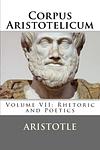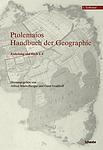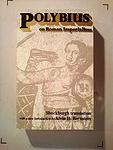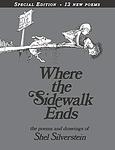The Greatest Greek "Nonfiction" Books of All Time
Click to learn how this list is calculated.
This list represents a comprehensive and trusted collection of the greatest books. Developed through a specialized algorithm, it brings together 284 'best of' book lists to form a definitive guide to the world's most acclaimed books. For those interested in how these books are chosen, additional details can be found on the rankings page.
Genres
Countries
Date Range
Reading Statistics
Click the button below to see how many of these books you've read!
Download
If you're interested in downloading this list as a CSV file for use in a spreadsheet application, you can easily do so by clicking the button below. Please note that to ensure a manageable file size and faster download, the CSV will include details for only the first 500 books.
Download-
1. The Republic by Plato
"The Republic" is a philosophical text that explores the concepts of justice, order, and character within the context of a just city-state and a just individual. It presents the idea of a utopian society ruled by philosopher-kings, who are the most wise and just. The dialogue also delves into theories of education, the nature of reality, and the role of the philosopher in society. It is a fundamental work in Western philosophy and political theory.
-
2. The Histories of Herodotus by Herodotus
"The Histories of Herodotus" is an ancient text that provides a comprehensive account of the Greco-Persian Wars. It is often considered the first work of history in Western literature. The author, often referred to as the 'Father of History', provides a narrative that not only discusses the conflicts between the Greeks and Persians, but also delves into the customs, geography, and history of each civilization. This detailed and pioneering work has greatly contributed to our understanding of the ancient world.
-
3. The Complete Works of Plato by Plato
This comprehensive collection compiles the philosophical works of an influential Classical Greek philosopher. The book includes his dialogues, letters, and philosophical musings, exploring topics such as justice, beauty, truth, mathematics, politics, love, and virtue. The philosopher's ideas, including the theory of forms, the allegory of the cave, and the philosopher king, have had a profound impact on Western thought and continue to be studied and debated in modern philosophical and academic circles.
-
4. The Nicomachean Ethics by Aristotle
This philosophical work focuses on the concept of ethics, specifically virtue ethics, and how it relates to a person's character and happiness. The author argues that happiness is the highest good and the end goal of life, and that it is achieved not through pleasure, but through virtuous actions. The book also explores the nature of practical reasoning, the different kinds of virtues, the importance of friendship, and the role of luck in human welfare.
-
5. The History of the Peloponnesian War by Thucydides
This book is a historical account of the Peloponnesian War between the city-states of Athens and Sparta in ancient Greece. The author, an Athenian general, provides a detailed narrative of the war, its causes, and its consequences, offering valuable insights into the political and social dynamics of the time. The work is considered a pioneering piece in the field of history due to its rigorous methodology and critical analysis of events.
-
6. Parallel Lives by Plutarch
"Parallel Lives" is a collection of biographies of famous Greek and Roman figures, written in pairs to draw comparisons between their lives. The work explores the influence of character on the lives and destinies of these historical figures. The biographies are not only a record of the lives of these individuals, but also provide insight into the times in which they lived, offering a unique perspective on the history and culture of the ancient world.
-
7. Corpus Aristotelicum by Aristotle
The "Corpus Aristotelicum" is a collection of texts by an ancient Greek philosopher, providing an extensive exploration of numerous fields of knowledge, such as metaphysics, ethics, logic, politics, biology, and poetry. These works have been instrumental in shaping Western philosophy and have had a profound influence on a wide range of subjects, including science, theology, and politics. The collection is known for its systematic and logical approach, and for its groundbreaking ideas that continue to stimulate intellectual discourse.
-
8. Symposium by Plato
In "Symposium", a group of notable men including philosophers, playwrights, and politicians gather at a banquet and decide to each give a speech in praise of the god of love. Each speech presents a different perspective on love, ranging from the purely physical to the spiritual. The dialogue culminates with the speech of Socrates, who presents a philosophical view of love as a means of ascending to contemplation of the divine.
-
9. Apology by Plato
This philosophical text is a dialogue of Socrates' defense in 399 BC against the charges of 'corrupting the young, and by not believing in the gods in whom the city believes, but in other daimonia that are novel.' The dialogue is Socrates' defense at his trial and is his final public statement before his execution. In it, he discusses the moral and philosophical justification for his actions and beliefs, ultimately leading to his conviction and death.
-
10. Phaedo by Plato
"Phaedo" is a philosophical dialogue that takes place in ancient Greece, where the main character, a philosopher, is awaiting his execution. The story is a discussion on the nature of the afterlife, the immortality of the soul, and the theory of forms. The philosopher argues that the soul is immortal and that we should not fear death. He also discusses his theory of forms, stating that the world we perceive is merely a shadow of the true world of forms. The dialogue ends with the philosopher calmly accepting his fate, illustrating his belief in the immortality of the soul.
-
11. Poetics by Aristotle
This book is a seminal work of literary criticism that has profoundly influenced western thought. The book discusses the nature of poetry, tragedy, and comedy, as well as the components that make up a good story such as plot, character, thought, diction, melody, and spectacle. The author also introduces the concept of catharsis, the purging of emotions through the experience of art, and discusses the role of the tragic hero. The book is a must-read for anyone interested in literature, drama, or philosophy.
-
12. Fragments by Heraclitus
"Fragments" is a collection of philosophical musings and theories from an ancient Greek philosopher. The book explores a wide array of topics, including the nature of the universe, the human mind, and the relationship between the two. Often cryptic and paradoxical, the author's thoughts challenge traditional perceptions of reality and encourages readers to think deeply about their own existence and understanding of the world.
-
13. Hippocratic Corpus by Hippocrates
The "Hippocratic Corpus" is a collection of around 70 early medical works from ancient Greece, written in Ionic Greek. The texts are of varying content and length, covering a wide range of medical topics, including clinical descriptions of disease, surgical procedures, medical ethics, and philosophical reflections. Although traditionally attributed to Hippocrates, modern scholars believe that many of the works were not written by him and instead represent the work of several different authors over several decades. Despite this, the collection remains an invaluable resource for understanding the beginnings of Western medicine.
-
14. Euthyphro by Plato
"Euthyphro" is a philosophical dialogue that takes place in the weeks leading up to the trial of Socrates, where Socrates and Euthyphro engage in a conversation about the nature of piety. The dialogue begins with Socrates questioning Euthyphro about his decision to prosecute his own father for the murder of a slave. This leads to a discussion about what is considered holy and the nature of the gods. Despite their lengthy conversation, the two philosophers never arrive at a definitive answer, leaving the question of what constitutes true piety unresolved.
-
15. Crito by Plato
"Crito" is a philosophical dialogue where the main character, a renowned philosopher, is in prison awaiting execution and is visited by his friend, Crito, who urges him to escape. The philosopher argues that since the laws of Athens have given him life, education, and many other benefits, it would be unjust for him to break those laws by escaping. The dialogue explores themes of justice, law, obligation, and the social contract.
-
16. Phaedrus by Plato
Phaedrus is a Socratic dialogue that discusses topics such as love, the nature of the soul, and the art of rhetoric. The narrative begins with a myth about the chariot of the soul, then moves on to a discussion about the nature of love, particularly focusing on the concept of divine madness. The dialogue then transitions into a discussion about rhetoric and writing, debating the merits and pitfalls of both. The dialogue concludes with a critique of the art of rhetoric, arguing that true rhetoric must be based on truth and knowledge rather than manipulation and deceit.
-
17. Metaphysics by Aristotle
"Metaphysics" is a philosophical work that delves into the fundamental nature of reality, including the relationship between matter and substance, potentiality and actuality, form and matter, existence and essence, and the underlying principles of being. It also explores the concept of 'first philosophy' or 'wisdom', and the existence of God as an unmoved mover. The book is a profound exploration of ontology, causality, and the abstract concepts of being and knowing.
-
18. Geography by Ptolemy
"Geography" is a seminal work in the field of geography and cartography, written by a renowned ancient Greek scholar. The book provides comprehensive details about the world as known during the Roman Empire. It contains a wealth of information about various countries, cities, landmarks, and geographical features, along with instructions on how to create maps. The author also introduces the concept of longitude and latitude, making this work a significant contribution to the field of geography.
-
19. Euclid's Elements by Euclid
This book is a comprehensive collection of definitions, postulates, propositions, and mathematical proofs written by an ancient Greek mathematician. It is considered one of the most influential works in the history of mathematics, serving as the main textbook for teaching mathematics, especially geometry, from the time of its publication until the late 19th or early 20th century. The book covers topics such as plane geometry, proportion in general, the properties of numbers, incommensurable magnitudes, and solid geometry.
-
20. Enneads by Plotinus
"Enneads" is a collection of 54 philosophical treatises by Plotinus, a prominent philosopher of the ancient world. The work is a cornerstone of Neoplatonism, a school of Hellenistic philosophy that sought to reconcile Greek philosophy with religious mysticism. The book covers a wide range of topics, including the nature of reality, the self, the universe, and the divine. The author argues for the existence of a transcendent One from which all existence emanates, and that the goal of human life is to strive for unity with this divine principle.
-
21. Discourses Of Epictetus by Epictetus
"Discourses of Epictetus" is a philosophical work that compiles the teachings of the Stoic philosopher Epictetus, as recorded by his pupil Arrian. The text is a practical guide for applying philosophy to daily life, emphasizing ethics, personal freedom, and mental strength. It explores how to live virtuously in accordance with nature, control one's emotions, and maintain tranquility by focusing only on what is within one's control. The discourses delve into discussions about the nature of human beings, the purpose of life, and the path to happiness, offering insights that aim to equip individuals with the resilience and wisdom necessary to lead fulfilling lives.
-
22. Anabasis by Xenophon
"Anabasis" is a historical narrative detailing the journey of 10,000 Greek mercenaries who are hired by Cyrus the Younger to help him seize the Persian throne from his brother, Artaxerxes II. After Cyrus's death in battle, the Greeks are stranded deep in enemy territory with no supplies or means of escape. The narrative follows their perilous journey home through hostile lands, under the leadership of one of their own, a young soldier who emerges as a capable and inspiring leader.
-
23. The Works of Archimedes by Archimedes
This book is a compilation of the surviving works of one of the greatest mathematicians and inventors of all time. It includes his theories and discoveries in fields such as geometry, calculus, physics, and engineering. Readers will find his famous treatises on the lever, the sphere and the cylinder, floating bodies, and the measurement of a circle, among others. The book also contains his explanations of the principles of mechanics, the concept of equilibrium, and the center of gravity of plane figures.
-
24. The Histories by Polybius
"The Histories" is a comprehensive account of the rise of the Roman Empire, focusing on the period from 264-146 BC. The author, a Greek statesman, provides a detailed analysis of the political, military, and social structures of Rome, attributing its success to a balanced constitution and superior military organization. The work also includes first-hand accounts of several significant events, such as the Third Punic War and the Numantine War.
-
25. Poems by Archilochos
The book is a collection of lyrical poetry from an ancient Greek poet renowned for his versatile and innovative use of poetic meters. The poems reflect the poet's personal experiences, emotions, and observations, often with a sharp wit and a frank, sometimes acerbic, tone. His work covers a range of themes, from war and politics to love and loss, offering a glimpse into the life and times of the early Greek lyrical tradition. The poet's influence is notable for his pioneering role in the development of the personal voice in poetry, breaking away from the Homeric tradition of epic storytelling to explore individual human experiences.
Reading Statistics
Click the button below to see how many of these books you've read!
Download
If you're interested in downloading this list as a CSV file for use in a spreadsheet application, you can easily do so by clicking the button below. Please note that to ensure a manageable file size and faster download, the CSV will include details for only the first 500 books.
Download























